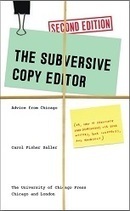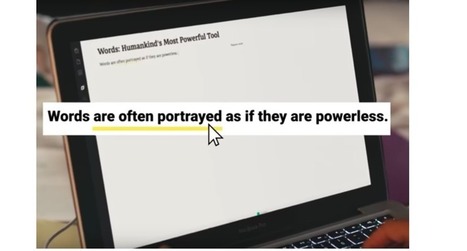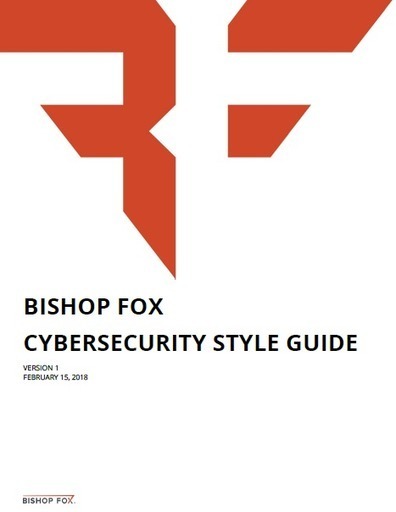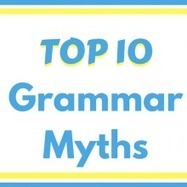Research and publish the best content.
Get Started for FREE
Sign up with Facebook Sign up with X
I don't have a Facebook or a X account
Already have an account: Login

Editorial tips and tools
2.1K views |
+0 today
Follow
| Tags |
|---|

 Your new post is loading... Your new post is loading...
 Your new post is loading... Your new post is loading...
From
feedly
Carrots were the source of one of the great disinformation coups of World War II.”
Frank Steele's insight:
Misinformation, disinformation, and the difference--and the great carrot hoax of WWII
I was experiencing symptoms of Computer Vision Syndrome (CVS) or screen fatigue, and I know I’m not alone. The American Optometric Association says that anyone who spends 2 or more hours every day looking at a screen is “at greatest risk for developing CVS” (1).
Frank Steele's insight:
Good advice on eye care for computer users.
Game of Thrones author George R.R. Martin described editors as “the invisible people”: “A good editor tries to figure out what the writer was trying to do, and helps him or her do it better, rather than trying to change the book into something else entirely.” That captures the editor’s role perfectly. Whether it is tentatively suggesting a small change to a line of dialogue, or firmly insisting on the deletion of an entire scene or character, the editor’s role is to spot the minor bumps and major p(l)otholes in the road, all in the service of the story. There might be a bit of a tussle, but between the writer and the editor, if they both do their jobs right, the road will be smoothed over, the editor’s intervention disappearing under the tarmac like a prehistoric burial site. That’s why editors are very visible to their authors and during the publication process, but they aim to become invisible in the finished book.
Frank Steele's insight:
The editor's role: invisible men and women
How does a professional copyeditor know when it’s time to retire? Freelancers especially may be tempted to sail on past the age at which in-house editors are encouraged to put down the red pencil. But in either case, how long is too long? Here are some questions to consider.
Frank Steele's insight:
Advice on when to stop editing, from Carol Fisher Saller.
Alain who is from Colombia and listens in Canada left a nice review on Apple Podcasts and also wrote, “I wonder if you could comment on the word ‘American’ when you are referring to the people of the United States. As a Colombian citizen I KNOW that me too, I am American, but at the same time I feel excluded when a person from the US says the word ‘American.’ [And he notes that I use the word American” quite often myself too.] Is it correct that The United States have appropriated this word for themselves while excluding Canadians and everything from Mexico to Patagonia?”
Frank Steele's insight:
Grammar Girl on the term "American." It's hard to remove from text, but you can often replace references to "America" with "United States" or "US."
Troubleshooting is our topic now. Because sometimes, spellcheck isn’t getting it right. The problem is usually that spell checking has been turned off, either generally or for that specific text. Here are three things to check
Frank Steele's insight:
Part 5 of the Spellcheck series: problems
EXCLUDE DICTIONARIES
Frank Steele's insight:
Part 4 of the Spellcheck series: Exclude dictionaries
Earlier this week, Merriam-Webster Dictionaries added 850 new words and definitions to its online dictionary. Some are recent coinages that were obvious candidates for inclusion, some are drawn from slang and intentional wordplay, and some are words you might be surprised didn’t already appear in the dictionary.
Frank Steele's insight:
News for wordies
The near-homophones defuse and diffuse can give writers and editors some trouble. Spellcheck certainly can’t save you from them, and understanding the words’ meanings is only half the solution. These words are easy for our eyes to slide over while we’re reading, making the error easy to miss and correct. They’re like time bombs waiting there in the text.
Frank Steele's insight:
Defuse it or diffuse it? Telling the difference
Have you ever been in the middle of reading a novel or a short story, when you happen upon a mistake about something you’re familiar with and get so annoyed that you don’t even want to finish the book?
Frank Steele's insight:
A reminder about fact-checking fiction
Aside from choosing which language the spellcheck is using, you can customize the dictionary that Word is using so that it reflects the style sheet in use. There are a few ways to customize the list. One is adding words, and the other is excluding words. (We’ll look at exclusions in the next instalment.)
Frank Steele's insight:
Part 3 of the series on Spellcheck: Adding words (and dictionaries)
The most dangerous manuscripts are either mindless or complex. In today’s talk I’ll tackle both, with bonus advice on staying organized.
Frank Steele's insight:
Carol Fisher Saller on dangerous manuscripts: "The most dangerous manuscripts are either mindless or complex. In today’s talk I’ll tackle both, with bonus advice on staying organized."
You know Spellcheck, and in the previous post, you learned about language preferences and how to control them. Now we’ll look at the ways to run Spellcheck in Word and how they’re different.
Frank Steele's insight:
More on the basics of Spellcheck
|
The verbs career and careen are easily confused — and they have been often enough that their meanings may merge sometime in the near future. But for now, they mean different things.
Frank Steele's insight:
Easily confused words: career and careen
Grammar checking: troubled waters but big improvements for Word’s spellcheck.
Frank Steele's insight:
Word's grammar checker: ineffective and time-consuming, which makes it a double waste.
In last month’s post, which argued against the feast-or-famine mentality, I mentioned that I currently try to work a maximum of 25 billable hours a week. A reader asked how I divvy up my non-billable hours, which was an excellent question that also hinted at a common source of confusion: what tasks are considered non-billable, and why do they matter to us as editorial freelancers?
Frank Steele's insight:
Finance for freelancers: A nice look at billable and nonbillable jobs, a subject rarely covered in blog posts
From
slate
As someone who had been testing out Grammarly’s services for a few months, I was both disquieted by Ormandy’s discovery and gratified by the company’s willingness to deploy a quick fix. Ultimately, however, nothing the company does could allay its true underlying problem: Its services just aren’t that good.
Frank Steele's insight:
A review of Grammarly, and it doesn't sound good. Confirms what many others have said.
As editors, we can have a significant impact on a document. From small, nuanced punctuation revisions to large-scale content changes, editing aims to revise the text to improve it. But what happens if an error is discovered in the final file? Or there’s an argument that the text wasn’t improved? What if, heaven forbid, there’s litigation about a document you reviewed? How liable are you, and do you need insurance to protect yourself from these possible scenarios?
Frank Steele's insight:
A good overview of what editors need to know about liability insurance
I do.
Frank Steele's insight:
Browser extension that might be helpful for fact-checking
[wrong] “I don’t know what to tell you,” she shrugged.
Frank Steele's insight:
Pointers on editing dialogue. I see the first one all the time.
When work and deadlines pile up, copyeditors freak out. But as I always say, there should be no crying in copyediting. Here are my best tips for taking the pressure off yourself.
Frank Steele's insight:
Carol Fisher Saller on relieving the stress of editing.
Most people reading this will have partial or passive familiarity with some terminology from programming, information security, and related domains, but they may have just a hazy grasp of how they’re used. What’s the difference between DOS and DoS? Does cold call take a hyphen? Is it a SQL or an SQL? How do you pronounce ASCII? What’s a dictionary attack?*
Frank Steele's insight:
Free cybersecurity style guide for editors
March 4 is National Grammar Day, so I have a special top-10 show to celebrate the occasion, and before you argue with me, read the whole explanation about why each of these is a myth.
Frank Steele's insight:
A nice overview of some grammar myths from Grammar Girl
Nita Strauss, the guitarist onstage with Alice Cooper? She's a freelancer, a hired gun. Piggy D (Matt Montgomery), the bassist onstage with Rob Zombie? Hired gun. Phil X, the guitarist who replaced Richie Sambora in Bon Jovi? Before becoming a full-fledged member of the band, he spent two years as their hired gun.
Frank Steele's insight:
Freelancers in the music business, with good advice and motivation for any freelancer
Formatting a spreadsheet is really about adding style so that your data is easy to read and interpret. When a spreadsheet is properly formatted, you can glance over the data and understand it much more quickly than flat data alone.
Frank Steele's insight:
Some basics on formatting in Google Sheets
|





























Pricing your services: How much is enough? And how much is the author willing to pay?